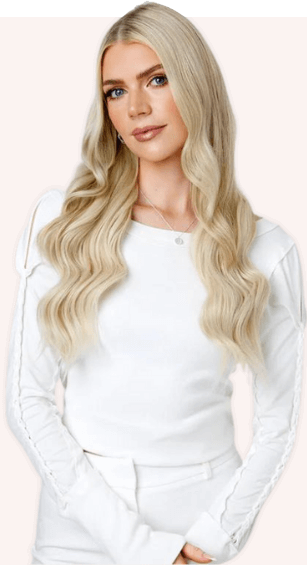Don’t get us wrong; we love warmer weather as much as the next person – trips to the beach, outdoor BBQs, warm, sunny weather – but one thing we don’t love is hair frizz. While some of us are more prone to it than others (i.e., those with coily or curly hair), higher temperatures and humidity can turn even the sleekest hair types among us into a poofy, frizzy mess. Lack of moisture, humidity, heat … sometimes it’s confusing to understand what causes frizzy hair. We’ve rounded up the list of common causes that make frizzy hair as well as the way to prevent it!
I. What Is Frizzy Hair?
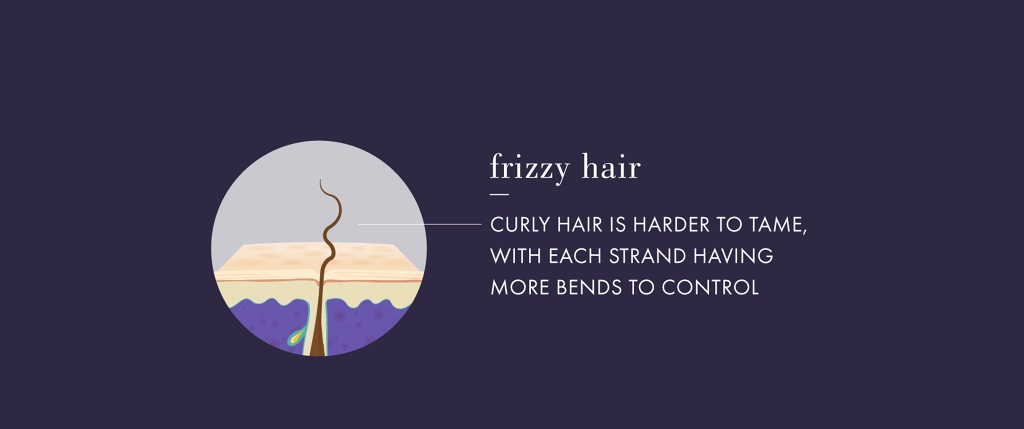
Frizz is hair that does not align with the surrounding hair, but stands up or curls independently, creating a fuzzy or irregular texture. Frizzy hair plagues many of us, especially those of us with curly or wavy hair. Frizz tends to stand up or curl, and adopts a different type of texture from the rest of your locks.
II. What Causes Frizzy Hair?
Before we get down to the nitty-gritty on how to prevent those unruly locks of yours, let’s talk about what causes frizz in the first place.
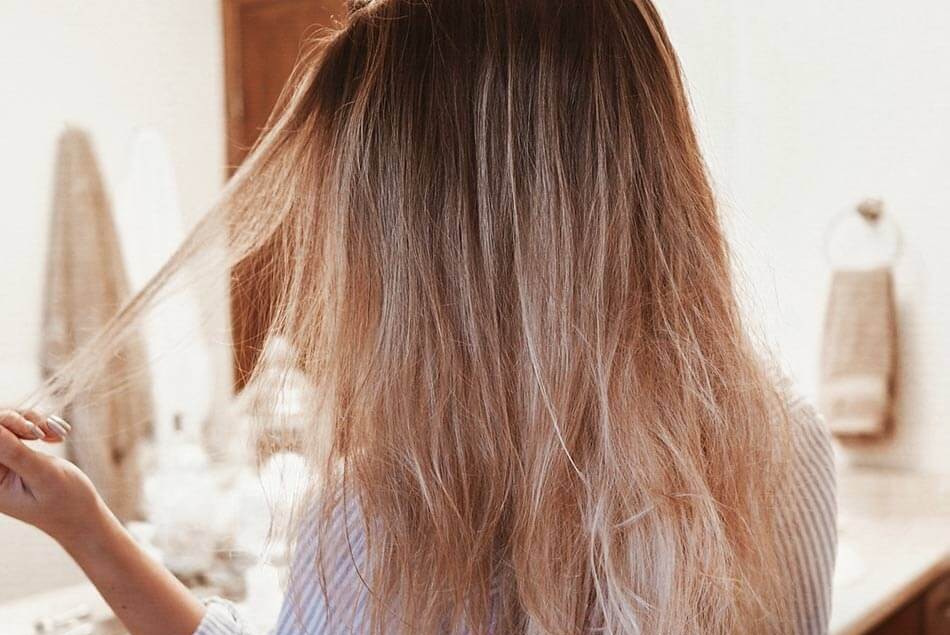
The three main causes of frizzy hair are genetics, damage, and humidity. However, depending on your hair texture, hair care routine, and lifestyle, these three factors can manifest in a variety of ways, resulting in various types of frizz. So, here is a comprehensive list of the causes of frizzy hair.
Frizzy Hair Causes #1: Humidity
Why does frizzy hair happen? The main culprit for frizzy hair is humidity. Humidity is a big contributing factor. You try so hard to keep your locks on fleek however the slightest tinge of humidity in the air is enough to kiss goodbye to your sleek and sophisticated hairstyles. Humidity can spoil a perfect hair day in minutes, whether it’s in the form of light drizzles of rain, sweat, or a high dew point.

Frizzy and damaged hair has undergone excessive weathering that’s worn down the outermost layers of your hair shaft, known as the cuticle. Once this is removed, the inner cortex layer is exposed, which can lead to hair breakage.
Frizzy Hair Causes #2: Dry & Dehydrated Hair
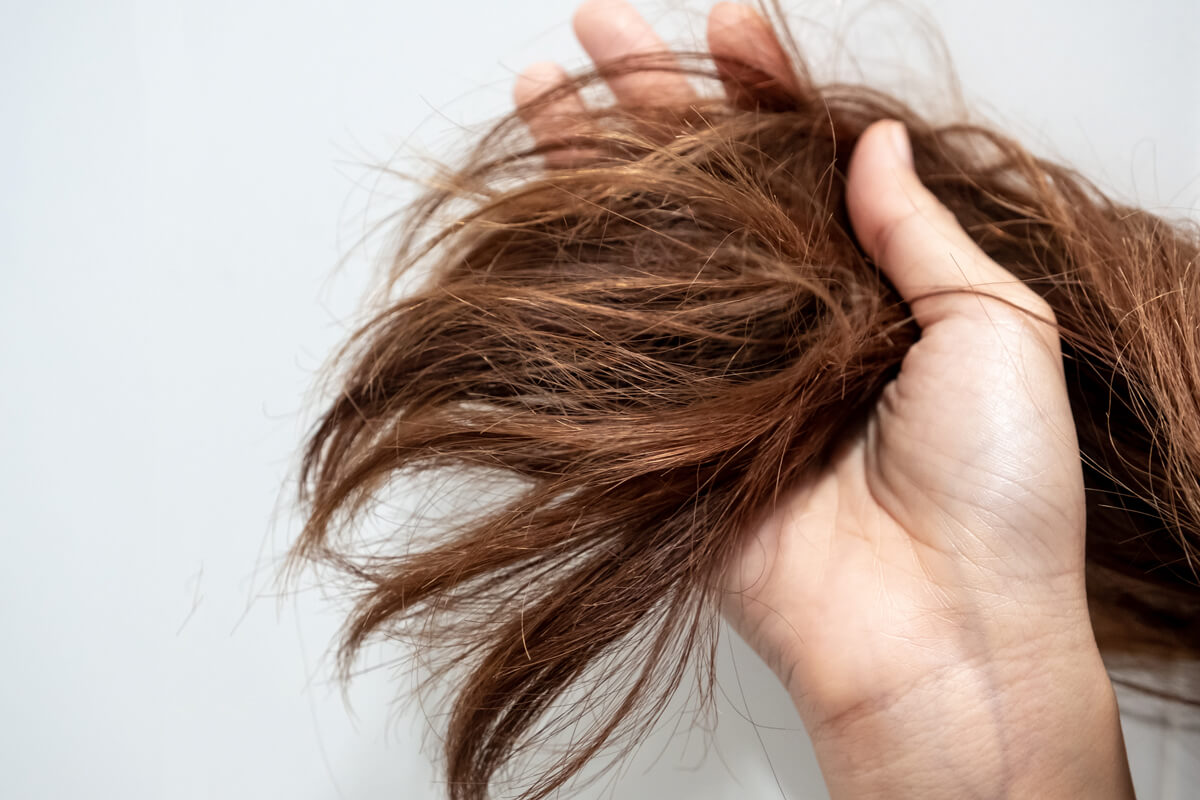
Frizzy hair is a sign of dryness. It shows that your hair is crying out for moisture. The main reason dry hair becomes frizzy is that the strands project away from the main body of the hair seeking moisture. Just as plant roots stretch towards the nearest sources of water in the soil, your parched hair strands start to unfold from their styled pattern desperately searching for that nearest source of water in the surrounding air.
Frizzy Hair Causes #3: Genetics
Your hair can be genetically predisposed to frizziness because of its texture.

For example, African-American, wavy, and curly hair tends to be the driest of all hair types because the scales on the cuticle layer don’t lay flat and aligned. They are naturally raised, which causes moisture to escape.
On the other hand, straight, Caucasian, and Asian hair, which are straight, are always perfectly aligned and sebum is evenly distributed. That’s why straight hair doesn’t always feel frizzy and is more manageable than naturally curly, kinky, or coily hair types.
Frizzy Hair Causes #4: Hair Damage
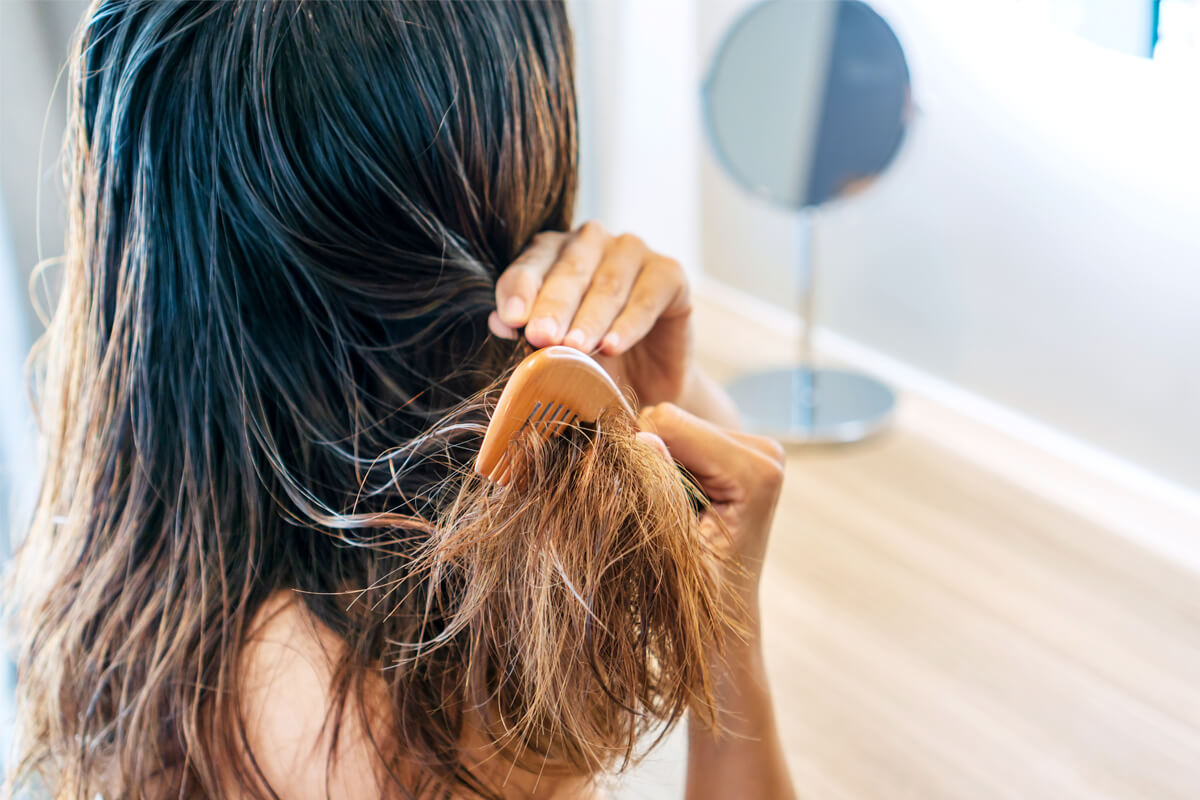
While frizz is a natural part of some people’s hair, it primarily affects those who frequently alter their hair texture with heat styling and harmful grooming habits. Years of accumulated damage from coloring, chemical treatments, and using products with harsh chemicals can cause frizzy hair problems because they weaken and lift the cuticles. All of this can lead to breakage, tangling, and split ends, giving your hair a dry, dull, and frizzy appearance.
Frizzy Hair Causes #5: Static Charges
Static happens when your hair builds up electric charges due to friction from other objects like a hairbrush, hair accessories, or even a change in the weather. As a result, the electrical charges make the hair strands repel each other, causing the appearance of a frizzy halo on top of your head.
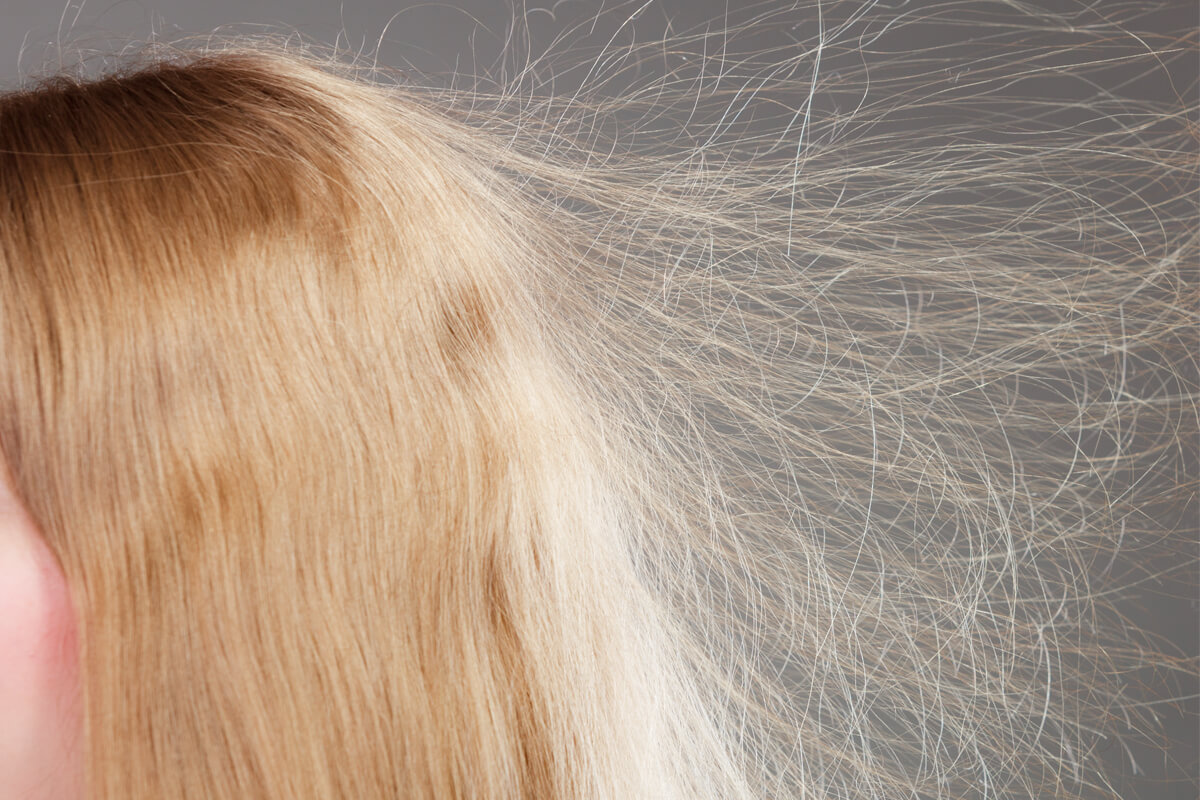
Causes of frizzy flyaway static hair:
- Dry Hair: Static is more likely to happen when your hair feels dry because dry surfaces don’t conduct electricity well. When your hair has enough moisture, static charges will spread out evenly, reducing the buildup happening in one place.
- Brushing: Using a plastic brush can cause static in your hair
Frizzy Hair Causes #6: Shampoos With Sulfates
Sulfates and other detergents in most drugstore shampoos attract oils and water to loosen grime, dirt, and buildup from the skin and hair. The issue is that sulfates do not discriminate. They remove sebum, which lubricates the hair strands and smoothes the cuticle layer, while cleansing the hair. The cuticle cells begin to tear apart and buckle over time, leaving your hair vulnerable to frizziness and breakage.
Frizzy Hair Causes #7: Split Ends
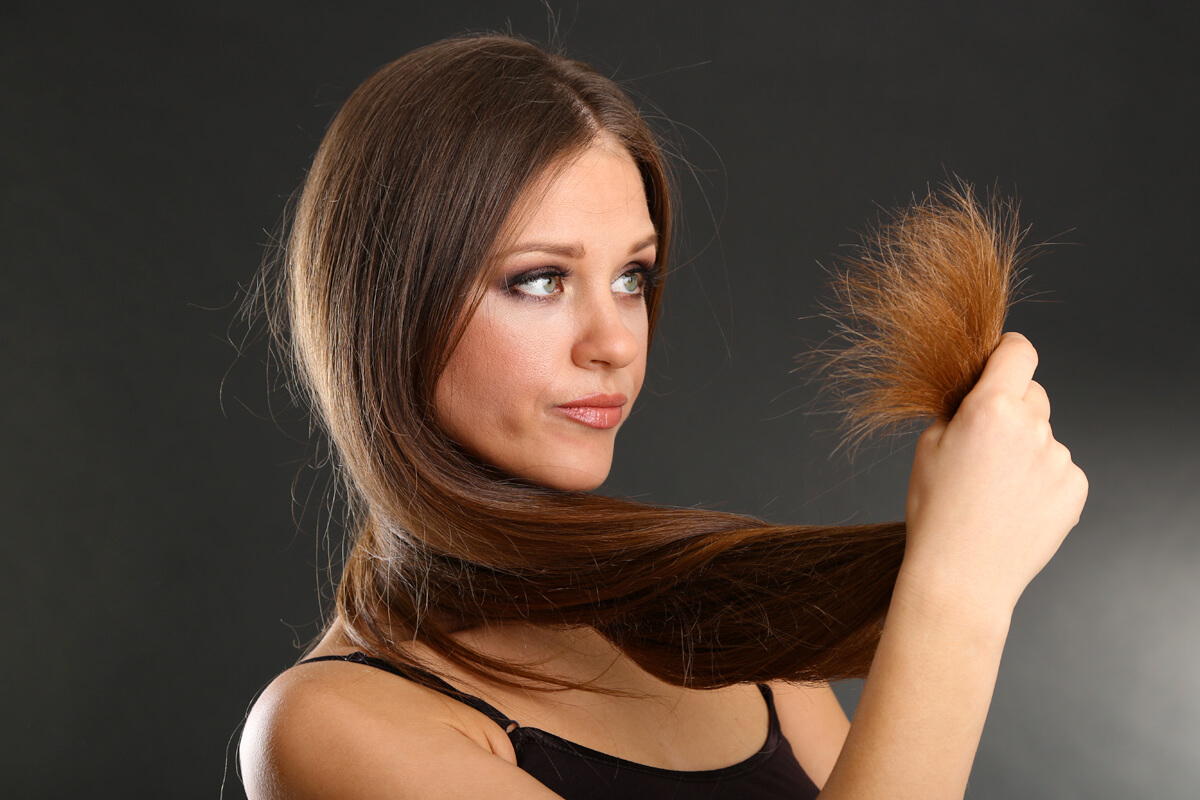
The ends of your hair are the oldest and the furthest from the scalp. Therefore, they don’t get enough natural oils to keep them lubricated and moisturized. That’s why the ends of your hair quickly develop into a messy pattern that refuses to blend in with the rest of your hair.
→ In general, having frizzy tresses is a sign of major hair damage that has compromised the structure of your hair strands and stripped its hydration away.
III. Best Way To Prevent Frizzy Hair
1. Start With A Good Haircut
Get rid of dry, dead ends. Split ends can travel up the strand causing more damage and frizz, so it’s best to get a haircut when you start to notice fraying.
2. Turn Down The Temp
While a hot shower may feel good on your muscles, it doesn’t do much good for your hair. The temperature of the water can cause the cuticle to raise and when the cuticles are raised, hair needs more moisture. That doesn’t necessarily mean you should suffer through a shivering shower: Just turn the knob down a notch or two so your shower is warm, but not steaming.
3. Wash Wisely
Products with high alcohol content tend to dehydrate the hair causing the hair to search for moisture. To reduce frizz, use shampoos with hydrating ingredients, which is a great humectant, meaning it absorbs the extra moisture in the air to create a protective coating over the strands.
4. Apply Stylers Strategically
The best way to keep your hair frizz-free is to lock in moisture right after you shower by combing a leave-in treatment through your hair. Look for products containing oils and silicons, which build a barrier on the hair, helping to keep the moisture in the air from getting under the cuticle.
5. Reduce Friction
Rubbing a towel aggressively against your hair disrupts the cuticle. Instead, we recommend drying your hair in a towel turban to prevent friction frizz. You can also reduce friction by swapping out your cotton pillowcase for a silk pillowcase. The slippery fabric allows hair cuticles to glide across the pillowcase rather than get snagged by it.
If you shower at night or just want to preserve a perfect blowout for second-day hair, try pulling your hair back into loose buns. This helps keep your hair from moving around while you toss and turn and it prevents morning tangles. When it comes time to brush your hair, ditch your normal brush and opt for a wide-toothed comb instead. Fewer bristles mean less friction on your hair and less breakage from forcing thick tangles through rows of bristles.


 BEST SELLING PRODUCTS
BEST SELLING PRODUCTS Wig Hair
Wig Hair WHOLESALE
WHOLESALE Contact us
Contact us Sale Events
Sale Events
